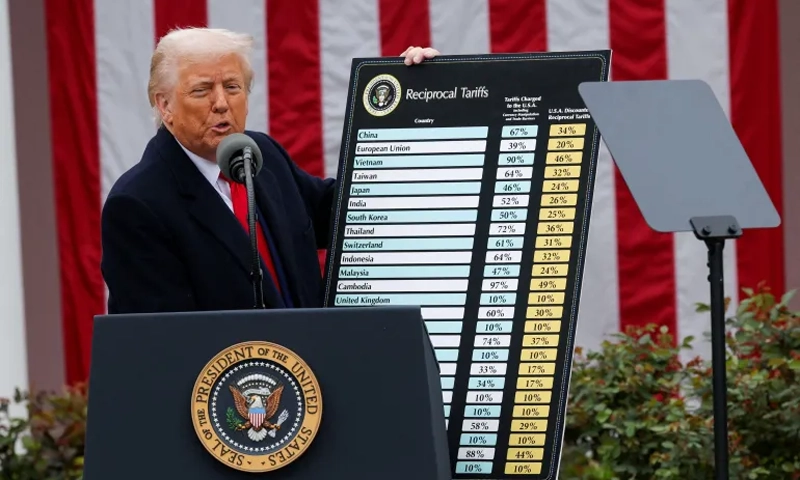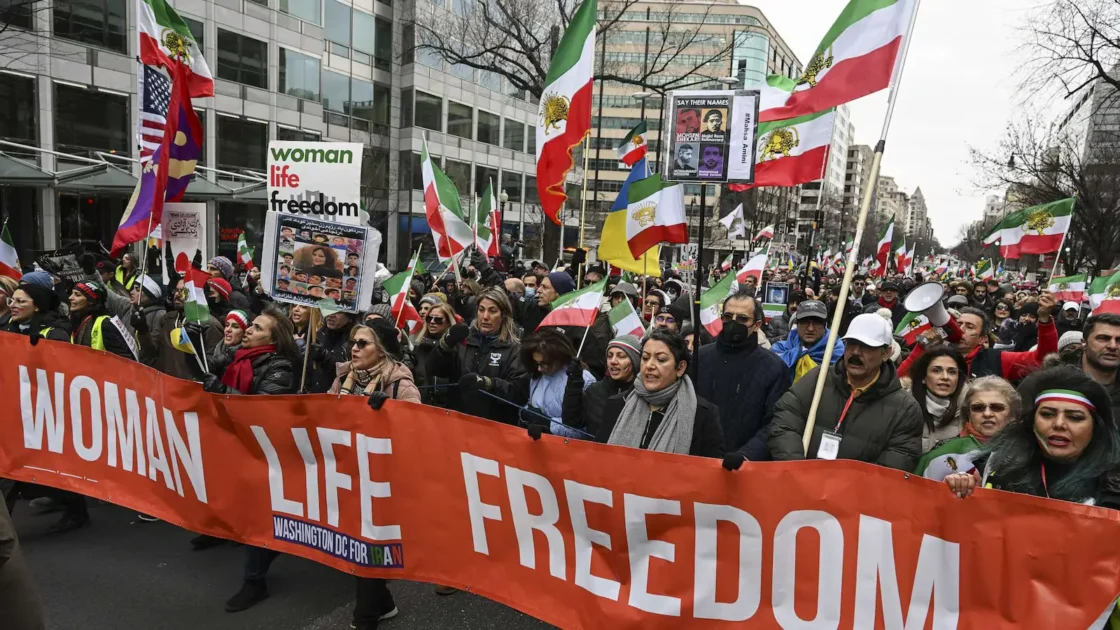- Web Desk
- 54 Minutes ago

Trump says will impose 25pc tariffs on Japan, South Korea

WASHINGTON: US President Donald Trump on Monday said he would impose a 25 per cent tariff on goods from Japan and South Korea starting on August 1, as he unveiled the first two of what he has said will be a wave of letters to trading partners outlining the new levies they face.
In near-identically worded letters to the Japanese and South Korean leaders, Trump said the tariffs would apply from August 1 because their trading relationships with Washington were “unfortunately, far from Reciprocal”.
“If for any reason you decide to raise your Tariffs, then, whatever the number you choose to raise them by, will be added onto the 25 per cent that we charge,” Trump said in letters to the leaders of the two Asian countries, which he posted on his Truth Social platform.
The rate for South Korea is the same that Trump initially announced on April 2, while the rate for Japan is 1 point higher than first announced. Trump a week later capped all of the so-called reciprocal tariffs at 10 per cent until July 9 to allow for negotiations. Only two agreements have so far been reached, with Britain and Vietnam.
JAPAN AND SOUTH KOREA AREN’T ALONE
On the other hand, Trump followed the initial announcement about Japan and South Korea by announcing tariffs on other some other countries. These include 25 per cent tariffs on Malaysia and Kazakhstan, 30 per cent on South Africa and 40 per cent on Laos and Myanmar.
Meanwhile, White House spokeswoman Karoline Leavitt said at a briefing that about12 countries will receive letters from Trump, without identifying them. She also added that Trump would sign an executive order on Monday formally delaying the July 9 deadline to August 1.
STOCKS DOWN
Meanwhile, Wall Street’s main indexes extended their fall after Trump made the announcement.
At 12:26 pm, the Dow Jones Industrial Average fell 456.55 points, or 1.02 per cent, to 44,369.96, the S&P 500 lost 53.47 points, or 0.86 per cent, to 6,225.58 and the Nasdaq Composite lost 187.70 points, or 0.88 per cent, to 20,413.28.
US-listed shares of Japanese automotive companies fell, with Toyota Motor down 4.1 per cent in early afternoon trading and Honda Motor off by 3.8 per cent.
THERE WAS NO RUSH
Even before his election to the office, South Korean President Lee Jae-myung had said there is no need to rush to reach a trade agreement with the United States.
Earlier, South Korea had suggested “calm” and “orderly” discussions with the US on trade issues, when two sides began talks last month.
In this connection, the former South Korean finance minister had listed four categories to focus – tariff-and non-tariff measures, economic security, investment cooperation, and monetary policies.
On the other hand, Chinese leader Xi Jinping last month urged Lee to work with Beijing to uphold free trade and defend “multilateralism”.
In a phone call with Lee, Xi said Beijing and Seoul to “inject more certainty into regional and international situations”, as well as to “promote strategic cooperative partnership to a higher level”.
BRICS THREAT
For its part, the European Union still aims to reach a trade deal by July 9 after European Commission President Ursula von der Leyen and Trump had a “good exchange,” a Commission spokesperson said.
It was not immediately clear, however, whether there had been a meaningful breakthrough in talks to stave off tariff hikes on the United States’ largest trading partner.
Adding to the pressure, Trump threatened to impose a 17 per cent tariff on EU food and agriculture exports, it emerged last week.
Trump had said on Sunday the U.S. was close to finalizing several trade pacts and would notify other countries by July 9 of higher tariff rates. He said they would not take effect until August 1, a three-week reprieve.
He also put members of the developing nations’ BRICS group in his sights as its leaders met in Brazil, threatening an additional 10% tariff on any BRICS countries aligning themselves with “anti-American” policies.
The BRICS group comprises Brazil, Russia, India and China and South Africa along with recent joiners Egypt, Ethiopia, Indonesia, Iran and the United Arab Emirates.
Trump’s comments hit the South African rand.
EU SEEKS EFFECTIVE APPROACH TO TRUMP
The EU has been torn over whether to push for a quick and light trade deal or back its own economic clout in trying to negotiate a better outcome. It had already dropped hopes for a comprehensive trade agreement before the July deadline.
“We want to reach a deal with the U.S. We want to avoid tariffs,” the spokesperson told reporters at a daily briefing. “We want to achieve win-win outcomes, not lose-lose outcomes.”
Without a preliminary agreement, broad US tariffs on most imports would rise from their current 10 per cent to the rates set out by Trump on April 2. In the EU’s case, that would be 20 per cent.
Von der Leyen also held talks with the leaders of Germany, France and Italy at the weekend, Germany said. Chancellor Friedrich Merz has repeatedly stressed the need for a quick deal to protect industries vulnerable to tariffs ranging from cars to pharmaceuticals.
The German spokesperson said the parties should allow themselves “another 24 or 48 hours to come to a decision.”
Germany’s Mercedes-Benz said on Monday its second-quarter unit sales of cars and vans had fallen 9 per cent, blaming tariffs.
Meanwhile, Russia said BRICS was “a group of countries that share common approaches and a common world view on how to cooperate, based on their own interests.”
“And this cooperation within BRICS has never been and will never be directed against any third countries,” said Kremlin spokesman Dmitry Peskov.






